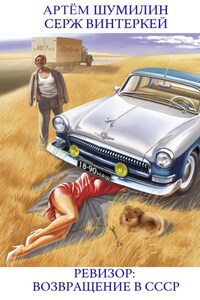The steel of the younger man’s foil made an arc against the padded waistcoat of his opponent and sprang back into shape, its point lowered to the ground. Laughing at his own failure, the Marquess of Sheen threw up an arm to acknowledge the scatterred applause. ‘Well done, my boy,’ he called, passing his foil to the appreciative fencing master. ‘Am I ever going to beat you again, I wonder?’
‘Not if I can help it, sir,’ said Lord Nicholas Elyot, removing his mask. ‘It’s taken me long enough to get to this stage.’ He shook his father’s offered hand, admiring the agility of the fifty-two-year-old body as well as the strength in his fingers, the keen brown eyes, the quick reflexes. As usual, he failed to perceive their similarities in the same way that others did, particularly Mr O’Shaunessy, the proprieter, who could see in Lord Elyot an exact replica of his father at the age of thirty, tall and broad-shouldered, slender-hipped and lithe, with legs like a Greek god. The dark, almost black hair that tousled thickly about the son’s handsome face was, on the Marquess, as white as snow and still as dense, and the mouths that broke into sympathetic smiles would have stopped the heart and protests of any woman. As they often had; both of them.
They sat together to watch the next contestants, the Marquess leaning back against the wall, his son leaning forward with arms along thighs. ‘Not below par, are you, Father?’ said Lord Elyot.
There was a huff of denial. ‘Nay, I could claim that as an excuse but it ain’t so, m’boy. Never better. Top form. M’mind on too many things at once, I suppose.’ The Marquess glanced at his son’s strong profile. ‘Well, I have to make up some reason, don’t I?’
Lord Elyot leaned back. ‘Only this once, sir. Where’s the problem, Richmond or London?’
‘Richmond, Nick. You say you’re going back tomorrow?’
‘Yes, a few loose ends to tie up here first, then I’ll be off. It’s been almost five weeks. Time I was attending to things.’
‘Petticoat problems, is it? You still seeing that Selina Whatsit?’
‘Miss Selena Whatsit,’ said Nick, ‘departed my company weeks ago, Father. You’re way out of date.’ He began to unbutton his shirt.
‘By how many?’
‘Oh, I dunno. A few. Thing is, I think it’s time our Seton was taken back home before he strays into dun territory. No, don’t be alarmed, he ain’t there yet, but he soon will be if he stays here in London much longer. There’s plenty to keep him occupied in Richmond. He can do the rounds with me and the bailiff and the steward for a start, and get some good air into his lungs. I can find ways of keeping his hands out of his breeches pockets.’
‘You might want him to help you with a bit of investigating too, in that case. That may keep him busy.’
‘What’s to do, sir? Poachers again?’
‘No, nothing so simple. Some complaints from the Vestry about interference in parish affairs.’
‘By whom?’
‘Ah, well, that’s the problem, you see. They don’t know. Let’s go and get changed and I’ll tell you about it.’
As with other noblemen who took their role in society seriously, the Marquess of Sheen, whose ancestral home was at Richmond, in the county of Surrey, had several professional obligations, one of which was to King George III to whom he was Assistant Master of Horse, and another to the Bench where he sat as Justice of the Peace. The obligation to his estate at Richmond was administered in his absence by his eldest son, Lord Nicholas Elyot, who would have to perform those same duties sooner or later anyway, so had no objection to taking that particular burden off his father’s shoulders. Only a two-hour drive away from London, on a good day, Richmond lay further up the River Thames, and its parish council, the Vestry, was made up of stalwart citizens of good standing, including the church minister, the local schoolmaster, landowners and the squire, who was the Marquess himself. The Vestry’s purpose was to deal with matters like street-lighting and the maintenance of roads, fires, crime and poverty. Criminals, who were almost always poor also, were locked into the local pound until they could be sentenced, while other unfortunates were sent to the workhouse, which, although it provided shelter and food, usually did little else for their creature comforts. It was regarded as a last resort.














